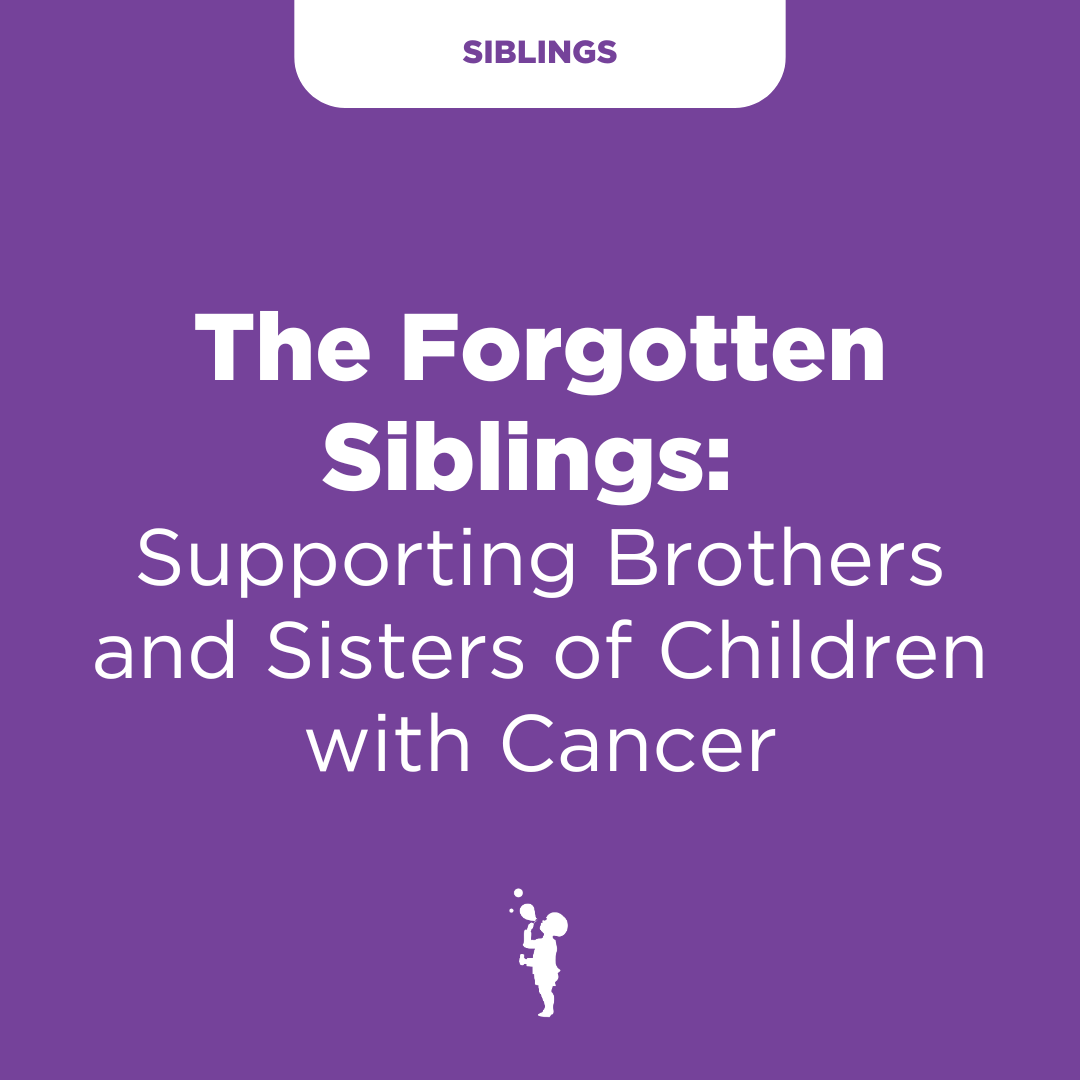5 Mental Health Tips for Caregivers Navigating a Child’s Cancer Diagnosis
A pediatric cancer diagnosis is life-altering—not only for the child, but for the entire family. In the midst of managing medical decisions and appointments, it’s easy for caregivers to put their own mental health on the back burner. But your well-being matters.
Taking intentional steps to care for your mental health can help you show up stronger—for your child, and for yourself. Here are five practical ways to support your mental health during this challenging time.
.avif)
1. Lean on Social Support:
You don’t have to go through this journey alone. Reach out to friends, family, and support groups who can provide emotional support. Whether it's a loved one offering a shoulder to lean on, or a professional therapist helping you navigate the emotional landscape, connection is key.
Knowing that you're not alone in this experience can be incredibly comforting and can help you feel understood. Additionally, research shows that having social support can increase your overall well-being and can even decrease anxiety, stress, and depression.
Tip: Ask for help when you need it! Whether it's arranging meals, helping with household chores, or simply spending time with you, let others lend a hand.
2. Set boundaries:
While you may feel the urge to constantly focus on your child's treatment and well-being, it’s essential to set boundaries to avoid burnout. Protect your energy by saying "no" when necessary—whether it’s declining social invitations, limiting visitors, or adjusting work responsibilities. This doesn’t mean you’re neglecting your child; it simply means you’re recognizing your own limits and preserving your well-being.
Setting clear boundaries allows you to focus on what truly matters without feeling overwhelmed by external pressures. You can also communicate your needs to others, letting them know how they can best support you during this time.
Tip: Set aside time each week for yourself to recharge without interruptions, even if it's just for a short period.
3. Allow Yourself to Feel all of Your Emotions:
A cancer diagnosis brings with it a flood of emotions – shock, fear, anger, guilt, and sadness are all common reactions. It's important to remember that these emotions are natural and valid. Don’t suppress your feelings or feel guilty for feeling overwhelmed. Allowing yourself to experience your emotions without judgment is the first step in maintaining mental health. Talk about how you're feeling with trusted friends, family, or a therapist. Expressing your emotions in a safe and supportive environment can help alleviate mental stress and bring clarity during a challenging time.
Tip: Try journaling your feelings. Writing can be a cathartic way to process difficult emotions and keep track of how you're managing over time.
4. Create Routines for Self-Care:
Amid the chaos of hospital visits, treatment schedules, and caregiving responsibilities, it’s easy to neglect your own physical and emotional needs. However, taking care of yourself is crucial for maintaining the energy and mental strength needed to support your child. Establish small, achievable routines for self-care that prioritize your mental health. This could be as simple as a daily walk, a few minutes of meditation, or reading a book to unwind.
It’s essential to get enough rest, eat nutritious meals, and engage in activities that bring you joy, even if it’s for just a short time each day. Caring for your own physical health will directly support your emotional health, so don’t underestimate the power of these small acts of self-care.
Tip: Consider using mindfulness or relaxation techniques, such as deep breathing or yoga, to help manage stress.
5. Seek Professional Help when Needed:
If you're finding it difficult to cope with the stress and emotional toll of the diagnosis, seeking professional help can make a significant difference. Therapists and counselors who specialize in working with families affected by pediatric cancer can provide strategies to manage anxiety, depression, and grief. Talking to a professional at the Austin Hatcher Foundation can help you gain perspective, develop coping strategies, and process your emotions in a healthy way.
Tip: If you're feeling overwhelmed by stress or emotional exhaustion, it's okay to reach out for help. Therapy can provide invaluable tools to help you process complex emotions.
Conclusion
There is no "right" way to navigate the emotional journey of a pediatric cancer diagnosis, but caring for your mental health is an essential part of the process. Whether it’s setting boundaries, seeking support, or simply taking a moment to breathe, each step you take is an act of resilience. Remember: you are not alone, and it’s okay to ask for help. Your well-being matters—and you deserve care, too.
The Austin Hatcher Foundation provides free, lifetime therapy for pediatric cancer families. If you are a caregiver for a patient or survivor, request an appointment here.


.png)


.png)

.png)
.png)
